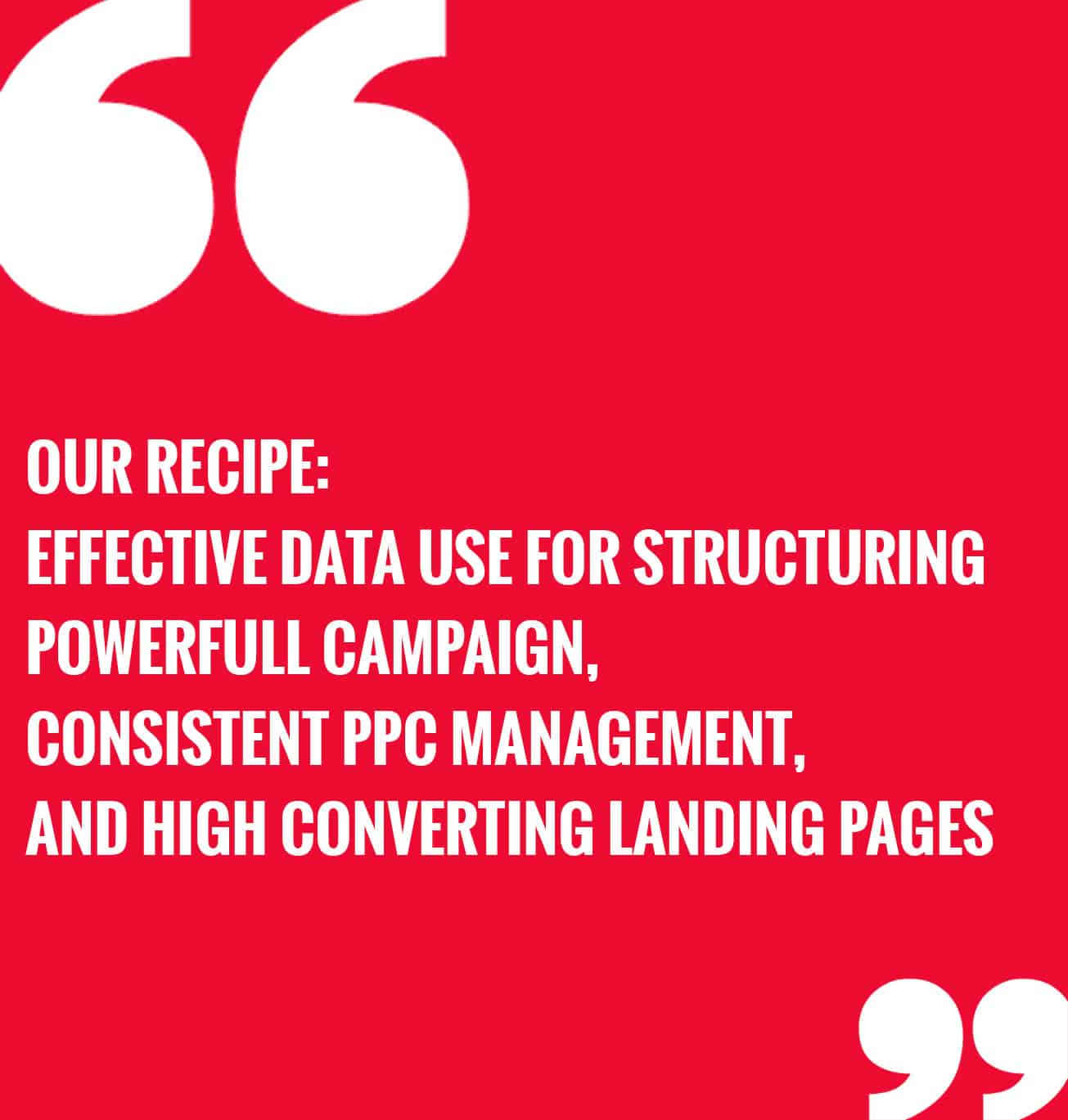PPC MARKETING AGENCY
What is Paid Search Management?
Paid search management, or pay-per-click (PPC) management, is an online advertising strategy that focuses on getting potential customers to click on a paid listing that appears after they’ve searched for a specific product or service.
Executive Digital specializes in researching and buying keywords that will specifically convert potential customers into paying customers. Whether it’s your first time doing a paid search or you want to expand your current campaign, we have the expertise and tools to maximize your paid search dollars.
PAID SEARCH MANAGEMENT BRINGS CUSTOMERS TO YOUR LISTINGS
Paid search, or PPC, management begins with identifying keywords that potential customers use when they search the web through search engines like Google and increasingly on social media sites.
Businesses only pay when customers click on their paid search listing. The more clicks a paid search listing gets, the better the business’ return on investment (ROI). Even better, PPC rewards successful PPC ad campaigns by giving them better placement on search engine result pages, or SERPs.
We start the process by researching your business and industry and create lists of keywords that resonate with potential customers. We compare these keywords to similar ones that may produce more conversions--clicks to a landing page we create for each specific paid search campaign.
Once they reach this customized landing page, customers can easily contact the business by clicking on hyperlinks to call, email, or send a direct message. Most of our clients have sales staff standing by to receive contacts and respond within 24 hours or less.
Our PPC managers concentrate on getting the greatest return for each PPC dollar spent. They monitor search fluctuations that occur in all search engines, and shift advertising dollars to keywords that have become more popular, as well as suggested keywords for targeted search. It’s not at all unusual for them to adjust bids on a daily basis.

PPC ADVERTISING ON SOCIAL MEDIA
Social media platforms have become great places to advertise products and services. People spend a lot of time on them and are more likely to engage with appealing content, even from advertisements.
In fact, it’s been reported that brands in particular stand out in a positive way when they make bold statements that build their credibility. Playing it safe isn’t a strategy in today’s social media advertising.
Plus, social media platforms like Facebook and Twitter now work like mini search engines, complete with their own PPC services. You’ve probably noticed more relevant advertisements appearing in your own feeds.
We carefully follow search engine PPC adjustments, an important step since many adjusted their targeting algorithms in 2017 and 2018. We have found these refinements made their paid search services much more accurate for businesses engaging on these platforms.
Customers who search on these platforms have provided a certain amount of demographic data when they joined them. This helps our paid search managers create campaigns and purchase keywords that improve targeting and are likely to get more conversions.
PPC ALSO BOOSTS ORGANIC SEARCH RESULTS
Getting ranked on Page One without some PPC investment is extremely difficult and rare. But great organic ranking will boost the likelihood for a PPC campaign will appear higher on a search--and paid search results always appear above organic search returns.
Let’s say your business provides custom home interior designs. You want a prospective client who searches for queries like “custom home interior designs” to find your listing. If you’ve taken steps to optimize your landing page, consistent PPC management will ensure your website will be among the first to appear in results.
If you’ve optimized your content for local results by including geographic keywords, your landing page is more likely to rank higher for local results.
We recommend these websites to read more about paid search management: Search Engine Land, Search Engine Watch, and Search Engine Journal.

